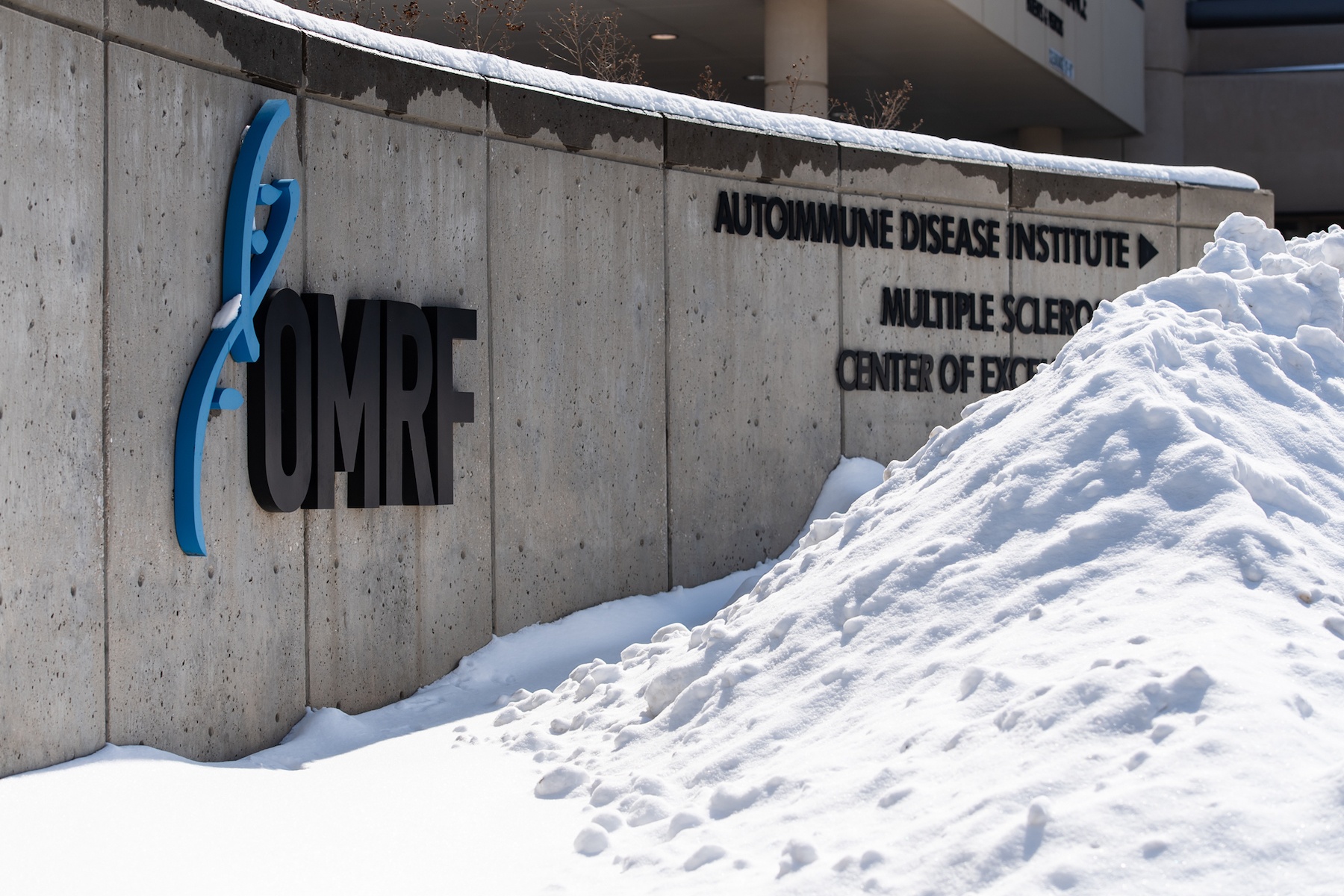From frozen pipes to power outages, the winter storms that swept the U.S. this week continue to cause problems for millions of Americans. But the frigid temperatures and historic snowfall might have a silver lining when it comes to the pandemic, say experts at the Oklahoma Medical Research Foundation.
“If people can’t go anywhere, they can’t spread Covid-19,” said OMRF immunologist Eliza Chakravarty, M.D. “It was a stay-at-home order issued by Mother Nature.”
Despite vaccinations steadily increasing and the state’s 7-day average of cases in decline, officials have cautioned that people should not let their guards down, particularly with more contagious variants circulating. But the weather is at least temporarily preventing major lapses in Covid precautions, says OMRF President Stephen Prescott, M.D.
“It’s a double-edged sword, as severe weather is dangerous in its own right,” said Prescott. “But from a virus standpoint, it will be interesting to monitor the Covid-19 case numbers for the next few weeks.”
Although the weather may have indeed disrupted virus transmission, it also shuttered Covid-19 testing sites across Oklahoma for several days. And that, Prescott warned, could be misleading once the snow melts.
“It will take time to see how much of a dent this storm really made, and whether the downward trend in cases we were already seeing nationwide is here to stay,” said Prescott. “If we play it smart, there’s reason to believe it could be.”
On Wednesday, the Oklahoma State Department of Health said it does not expect the state’s supply of Covid-19 vaccines to be impacted by the weather, with vaccination clinics set to resume as soon as it is safe. And for those who may have had their Covid-19 booster delayed by the snow, Chakravarty offered encouragement.
“Don’t worry if you’re late on your second dose by a few days or even a week, because it won’t affect your immunity,” she said. “But do make sure to get in as soon as you can once it’s safe.”
Until then, Chakravarty says, hunker down and stay warm.
“We all have a lot of practice with staying home,” she said. “Let’s hope this winter storm at least does us the favor of sending the Covid curve on a permanent downward trajectory.”




